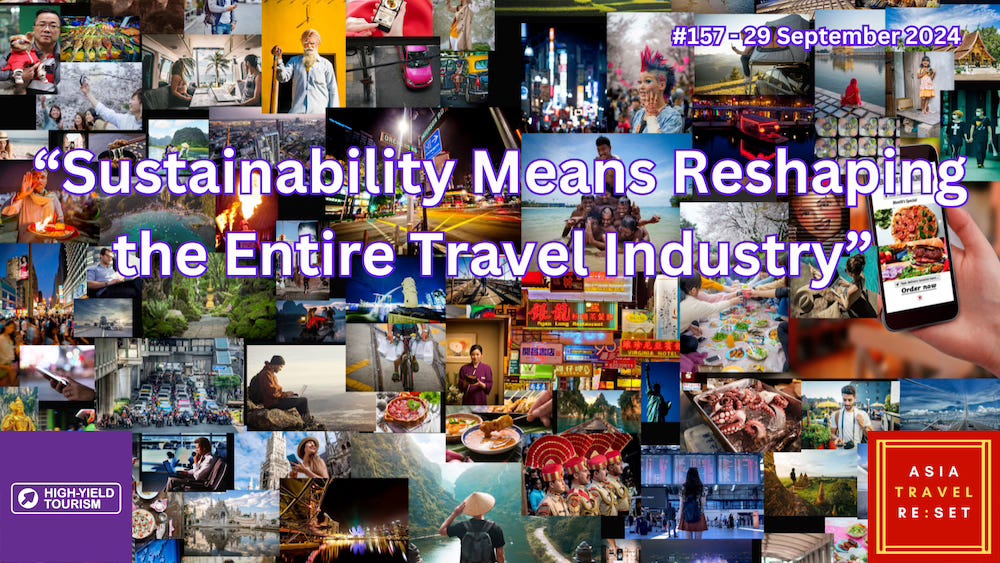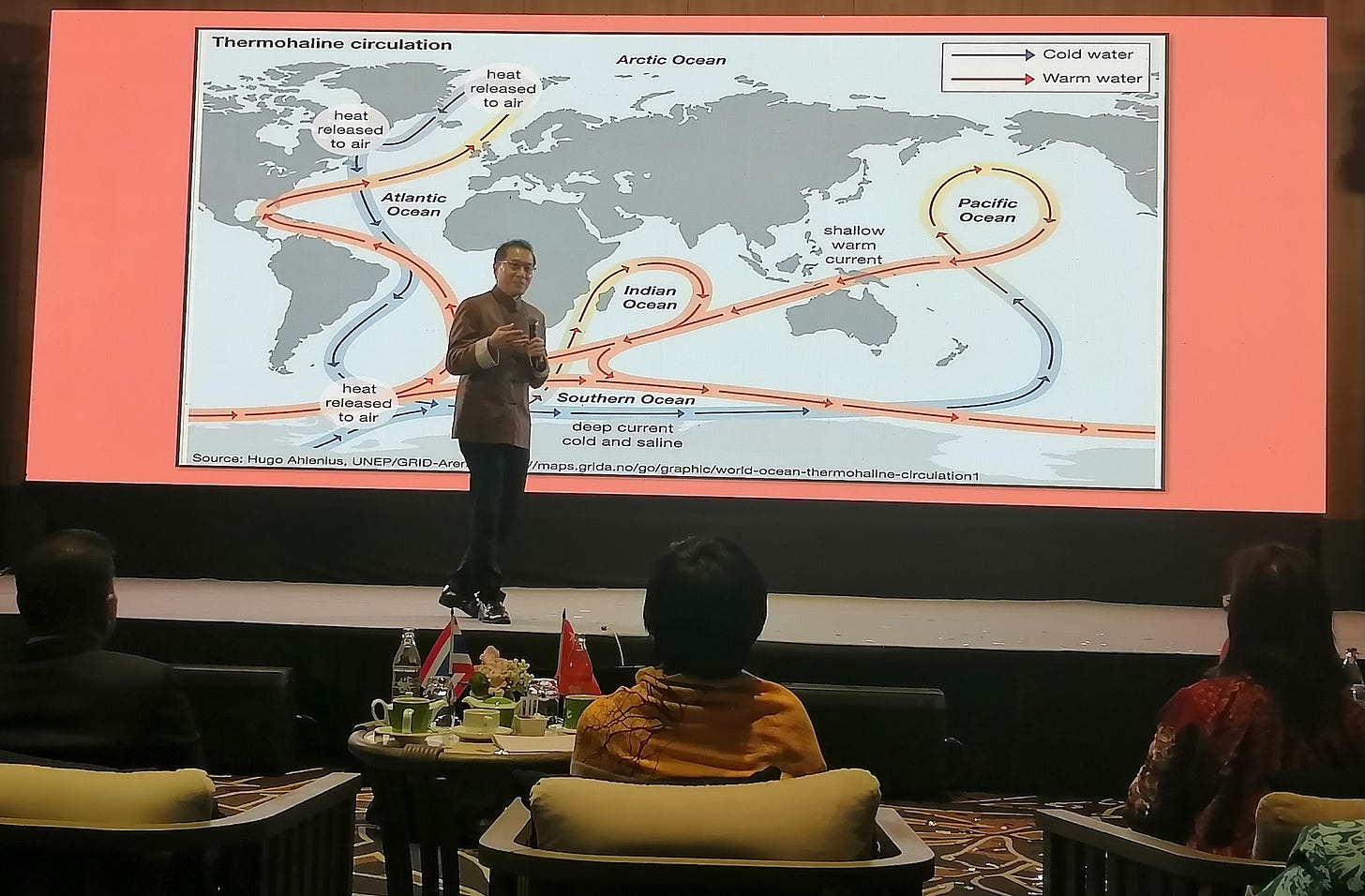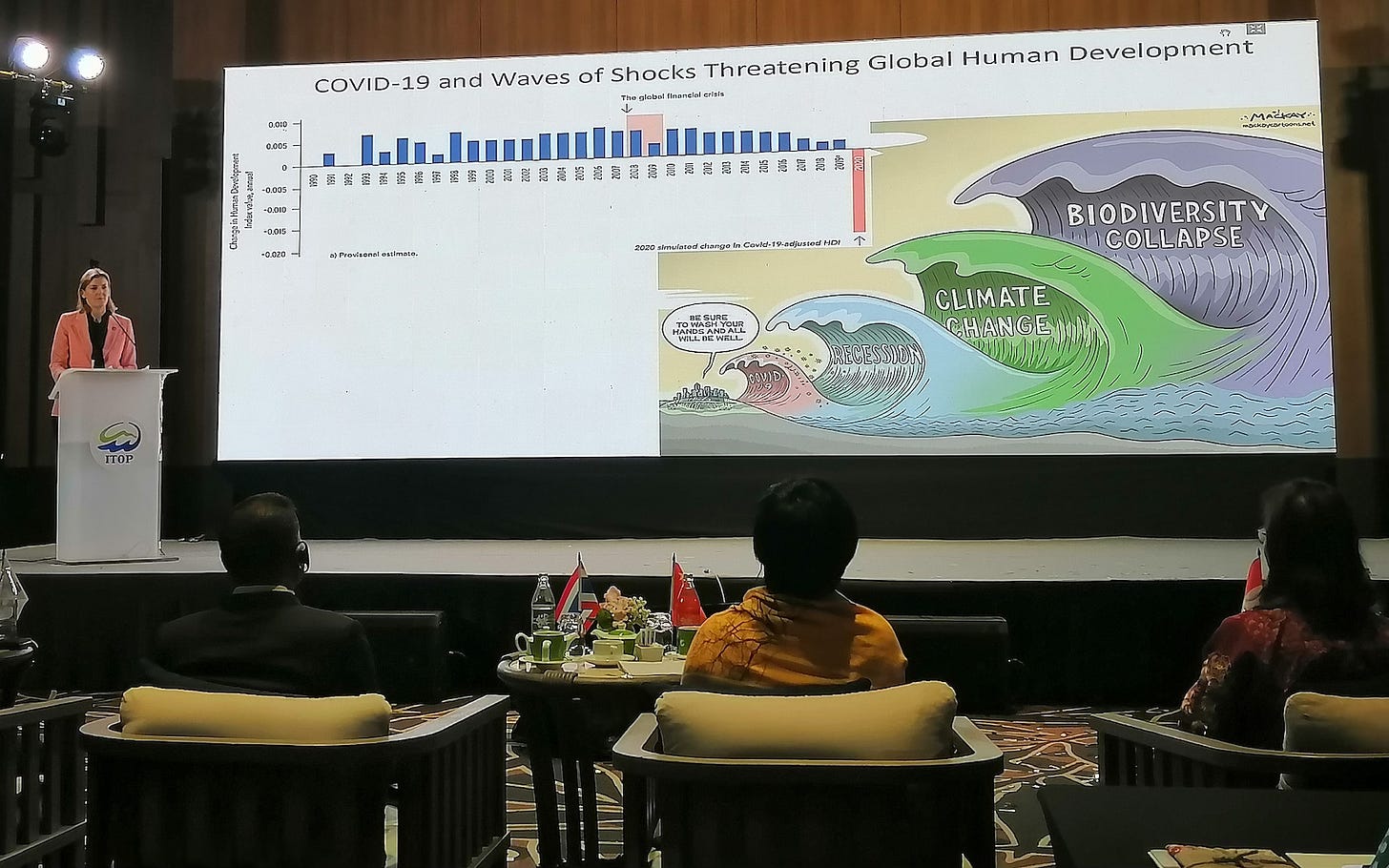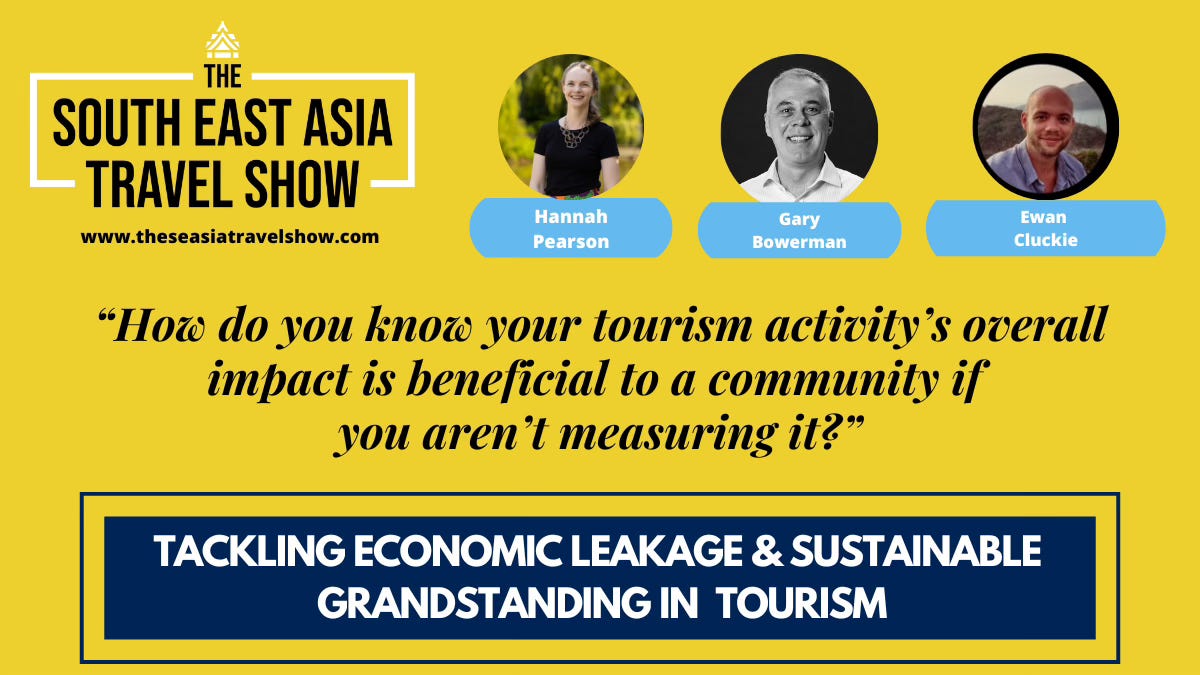Issue #157: "Sustainability Means Reshaping the Entire Travel Industry"
Green claims based solely on carbon offsetting schemes will remain banned.
Welcome to Issue 157 of Asia Travel Re:Set.
Quantifying socio-economic sustainability in tourism is an under-scrutinised topic.
This week, we got under the skin of “pro-planet tourism” on The South East Asia Travel Show and at the 25th Inter-Islands Tourism Policy Forum in Phuket.
So let’s follow that train of thought.
Thanks for checking in.
It's almost 21 months since China reopened, and October Golden Week is imminent. So, this is a perfect time to assess the where, what, why, when and how of Chinese travel and tourism.
The Phocuswright China Travel Market Report 2023-2027 is now published, and we've gone the extra mile to make sure this year's edition reflects and scrutinises the complex drivers of China's accelerating travel recovery at home and abroad.
Click HERE to find out more about the China Travel Market Report 2023-2027.
“Sustainability Means Reshaping the Entire Travel Industry”
Food & Water Insecurity. Ocean Acidification. Species Extinction. Rain Bombs. Drought. Waste Incineration. Marine Life Depletion. Rockslides. Greenwashing.
It’s rare to attend a tourism conference and feel genuinely terrified by its content.
So kudos to this week’s 25th Inter-Islands Tourism Policy Forum (ITOP) in Phuket. The one-day conference was divided into 2 parts - essentially Bad Cop-Good Cop. The morning featured expert climate impact speakers who outlined a pretty dark landscape for islands (and mainlands) in Asia Pacific and worldwide.
The afternoon featured case studies by official delegations from Phuket, Bali (which will host ITOP 2025), Hainan, Jeju, Okinawa and Zanzibar about their sustainability blueprints and implementation strategies. Admirably, they also addressed the steep challenges that shifting climate effects present for overall tourism planning.
Islands vs Nature
Geography decrees that islands are at the frontier of climate change. They face the ferocious impacts of severe weather in advance of mainlands. The outcomes devastate island communities, but this is often overlooked in national policy formation, said Dr Weerasak Kowsurat, Thailand’s Former Minister of Tourism & Sports:
“Many policymakers in the capitals do not appreciate the common environmental issues and economic challenges that islands face… They don’t know what it’s really like to live on an island.”
It’s a given, he added, that “Extreme weather events will continue to increase in frequency and intensity”. While climate policy should extend across economic and social life, tourism is central to the discussion as visitor economy income contributes a high percentage of GDP. One delegation quantified this figure as 75% of its GDP.
Boripat Siriaroonrat, President of the Green World Foundation, approached the issue from a different angle. “Climate change is talked about more than species loss,” he said. Marine tourism, which attracts visitors to island and coastal destinations, is an example of planetary decay. “Sharks and rays are disappearing, so how will we be able host tourists who want to see nature in the underwater world?”
He also referenced “a clear link between climate change, biodiversity and pandemics,” noting Thailand had recorded cases of 3 diseases it had not previously experienced: African Horse Sickness, Lumpy Skin Disease and African Swine Fever.
Post-pandemic Rethink
Speakers and delegations concurred that the pandemic has reshaped attitudes towards the real-life, real-world impacts of climate heating, biodiversity and public health.
Climate shocks and tourism are inextricably linked - particularly as some islands receive an annual visitor volume that is multiple times larger than the resident population, placing enormous pressure on already constrained resources.
Policies designed to mitigate tourism’s environmental impact remain fragmented, both within and across regions.
We will become more accustomed to sustainable certification mandates (the EU Green Claims Directive springs to mind - which contains a clause stating “Green claims based solely on carbon offsetting schemes will remain banned”). The debate around Sustainable Aviation Fuel will intensify (see this interesting new article by SimpliFlying’s Dirk Singer), and imposing demand-side carbon taxes and fees on travellers, as AirAsia announced this week, will become commonplace.
But more concerted, coordinated and scientifically driven efforts will be required.
“Sustainability is not an option. It’s about reshaping the entire travel industry,” said Niamh Collier-Smith, Thailand Resident Representative for the United Nations Development Programme (UNDP).
… Which brings us to…
“It’s just as important to discuss tourism’s negative impacts as it is to celebrate the positive ones. Without this critical acknowledgement, we view things through rose-tinted glasses and relieve ourselves of the pressure to fix the problems.”
On this week’s show, we evaluate the positively marketed benefits of tour operations on local communities with Ewan Cluckie, Founder of Tripseed. Thailand-based Tripseed has just published its Economic Distribution Disclosure Initiative, a set of tools to “drive transparency and positive impact within the local economy”.
Ewan explains what are economic leakages in tourism, how to measure them, why they matter - and where the money goes.
“You can’t improve what you don’t measure… Without doing so, the claims about how much money stays local are often baseless.”
He also addresses why economic leakage is "particularly pronounced" in Thailand. Plus, which universities and private sector organisations are keen to become involved?
Listen to 'Tackling Economic Leakage & Sustainable Grandstanding in Tourism, with Ewan Cluckie, Tripseed,’ here:
Or search for The South East Asia Travel Show on any podcast app.
And, that’s a wrap for issue 157.
Asia Travel Re:Set will return next Sunday.
Until then, find me at LinkedIn, The South East Asia Travel Show and High-Yield Tourism.
Happy travels,
Gary









